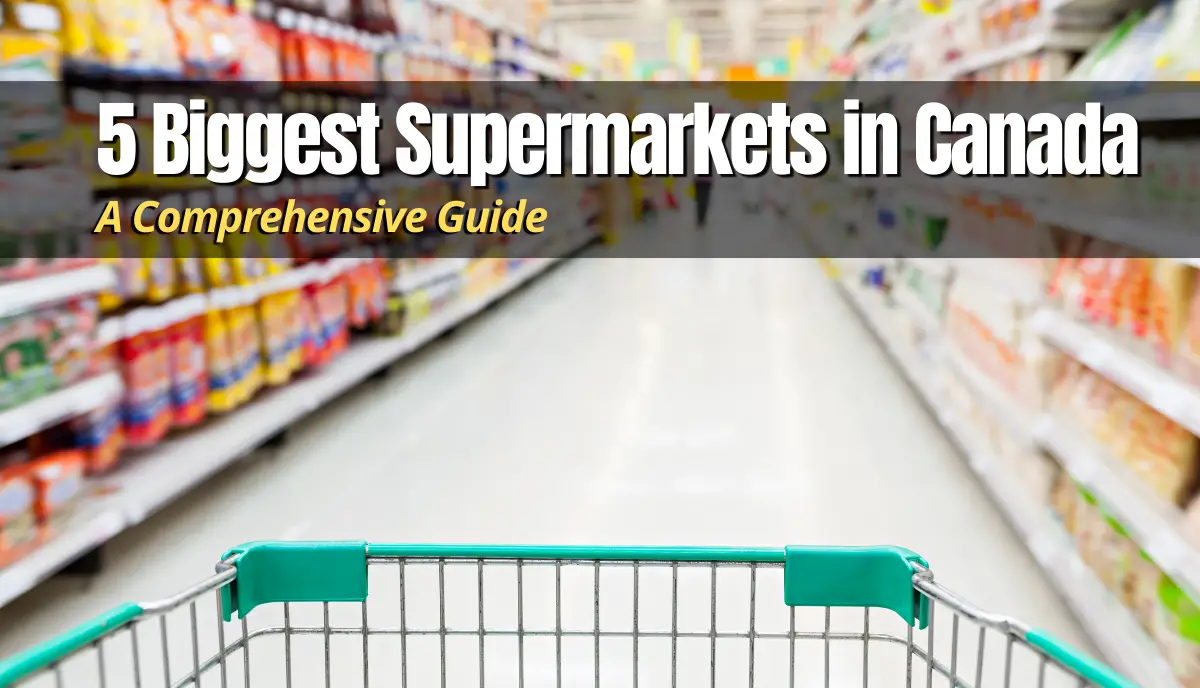In recent years, the Canadian supermarket industry has seen significant growth and change, with various players competing for their share of the market. This article will explore the five biggest supermarkets in Canada, providing a detailed list of their offerings, and what sets them apart from the competition.
As necessities for any community, supermarkets play a vital role in providing Canadians with access to fresh produce, groceries, and household products. The top supermarkets in the country have earned their position by offering a wide range of products, competitive pricing, and exceptional customer service. This analysis will provide insight into the market leaders and their unique strategies for success.
Understanding the supermarket landscape in Canada is essential for both consumers and businesses, as it allows for informed decision-making when it comes to grocery shopping and making strategic investments. Read on to discover the five biggest supermarkets in Canada and how they have made their mark in the industry.
5 Biggest Supermarkets in Canada
Canada is home to numerous supermarket chains that cater to the diverse needs of customers. In this section, we will be discussing five of the biggest supermarkets in Canada, focusing on their key operations and market presence.
1. Loblaw Companies Limited
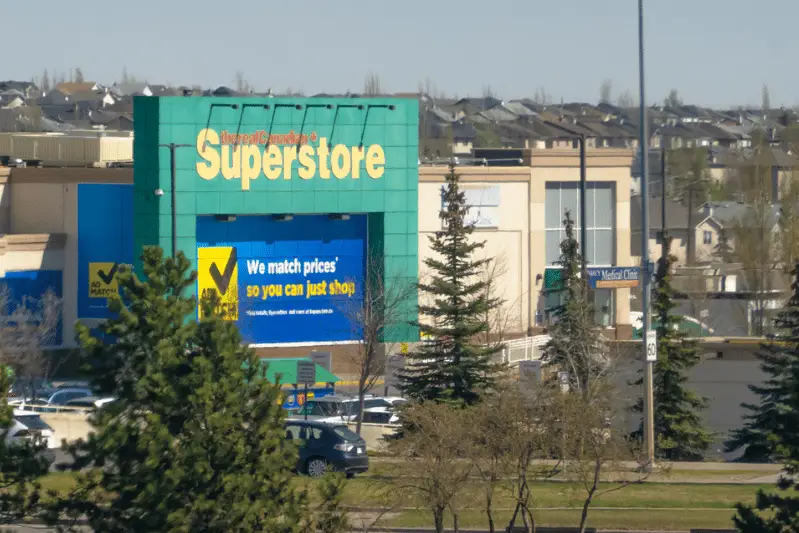
Loblaw Companies Limited is the largest supermarket chain in Canada, with over 2,400 stores across the country. They operate through various names, including Loblaws, Real Canadian Superstore, No Frills, and Shoppers Drug Mart. The company offers a wide range of products, such as groceries, pharmacy, health and beauty, and more.
2. Sobeys Inc.
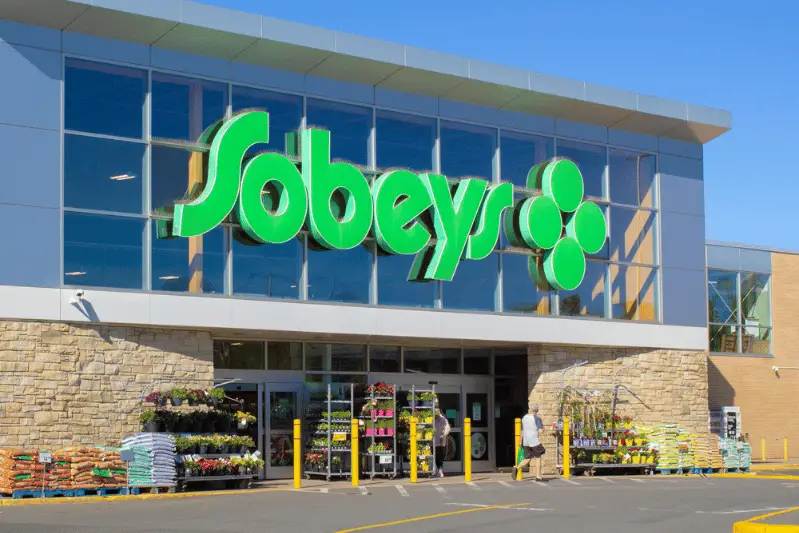
As the second-largest supermarket chain in Canada, Sobeys Inc. operates more than 1,500 stores throughout Canada. Their retail stores include Sobeys, Safeway, IGA, Foodland, and FreshCo. Sobeys Inc. is committed to offering high-quality food products, sustainable seafood, and locally sourced products to meet customer preferences.
3. Metro Inc.
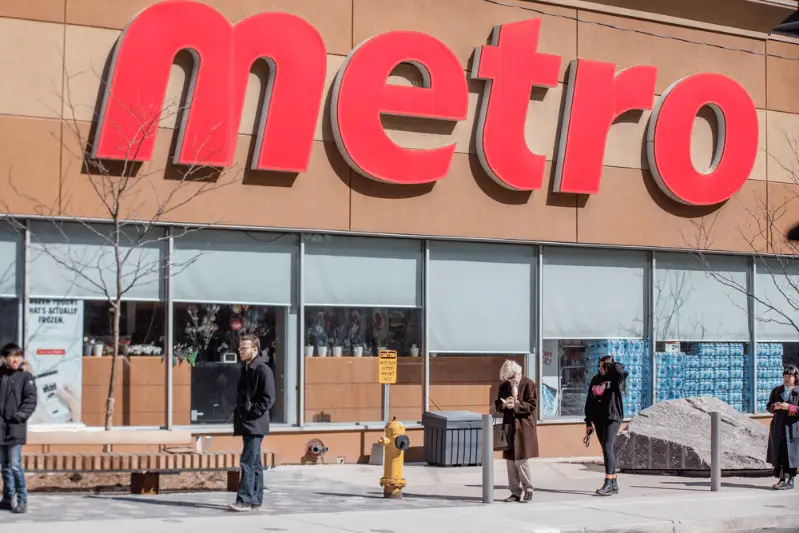
Metro Inc., the third-largest supermarket chain in Canada, boasts a network of over 950 stores. They operate under the Metro and Food Basics banners in Ontario and Metro, Super C, and Foodland banners in Quebec. Metro Inc. is known for its fresh produce, bakery items, and a variety of private-label brands catering to different customer segments.
4. Empire Company Limited
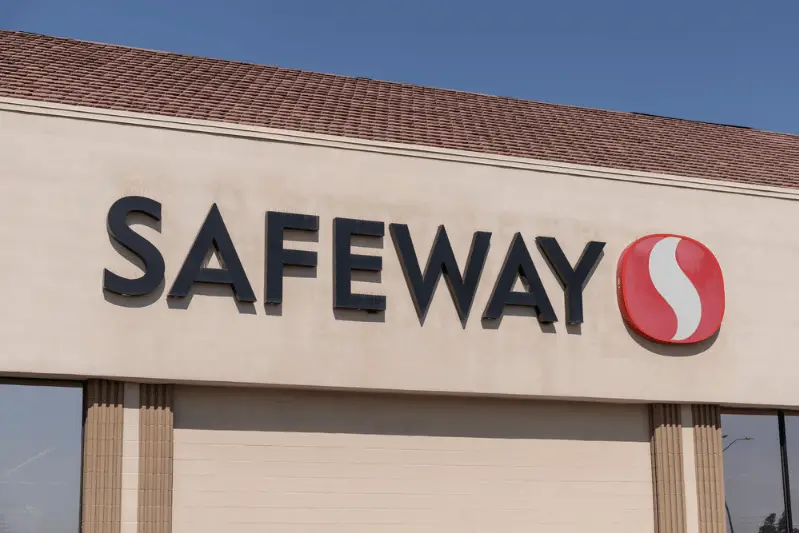
Empire Company Limited, the parent company of Sobeys Inc., holds a significant presence in the Canadian grocery market. Apart from their retail operations (Sobeys, Safeway, IGA, etc.), they have several business units, including wholesale, fuel, and real estate, allowing them to diversify across various market segments.
5. Save-On-Foods
 Save-On-Foods is a prominent supermarket chain in Western Canada, with 170+ stores spread across British Columbia, Alberta, Saskatchewan, Manitoba, and the Yukon Territory. They offer a comprehensive range of products, from fresh produce to frozen foods, along with an extensive selection of private-label items.
Save-On-Foods is a prominent supermarket chain in Western Canada, with 170+ stores spread across British Columbia, Alberta, Saskatchewan, Manitoba, and the Yukon Territory. They offer a comprehensive range of products, from fresh produce to frozen foods, along with an extensive selection of private-label items.
Read our related post of the 5 Biggest Supermarkets in United Kingdom here.
Market Share by Supermarket
Canada’s supermarket landscape is dominated by a few key players. In this section, we will discuss the market share held by the top five supermarkets, their significance in the Canadian retail industry, and their notable strategies and product offerings.
Loblaw Companies Limited is the largest food retailer in Canada, with its signature stores like Loblaws, Real Canadian Superstore, and No Frills. According to recent data, the company holds a market share of approximately 40% in the Canadian grocery industry.
Empire Company Limited, the parent company of popular grocery chains like Sobeys, Safeway, and FreshCo, follows closely as the second-largest supermarket group in the country. They hold an approximate market share of 24%, which has been increasing steadily thanks to strategic acquisitions and investments in e-commerce.
Metro Inc. operates in the Canadian supermarket industry through retail banners like Metro and Food Basics. It is the third-largest player in the market with a share of around 21%. Metro’s growth can be attributed to effective supply chain management and the expansion of their online offerings.
Walmart Canada is the fourth-largest supermarket in the country, with a market share of approximately 8%. They have been gradually expanding their grocery section, adapting their big-box retail format for the Canadian market.
Costco Wholesale Canada ranks fifth in market share, holding about 7% of the Canadian grocery market. Costco’s membership-based model, emphasizing bulk buying and competitive pricing, has been successful in attracting a large customer base.
Historical Background
The history of supermarkets in Canada can be traced back to the early 20th century. During this time, the grocery retail landscape was dominated by small, independent stores and local markets. The first significant shift towards the supermarket model occurred in the 1930s and 1940s with the emergence of larger, self-service grocery stores.
These early supermarkets started to gain popularity due to their ability to offer a wide range of products under one roof, making shopping more convenient for Canadians. Gradually, this led to a consolidation of the industry, with several key players emerging and expanding across the country.
By the late 20th century, regional supermarket chains started to dominate the Canadian market. Some of these chains included Dominion Stores in Ontario, Safeway in western Canada, and Steinberg’s in Quebec. However, the 1990s and early 2000s saw a wave of mergers and acquisitions that resulted in the creation of a few national players with coast-to-coast presence.
Today, five major supermarket chains account for the majority of grocery sales in Canada:
- Loblaw Companies Limited
- Sobeys Inc.
- Metro Inc.
- The Great Canadian Superstore
- Walmart Canada
These companies, along with a few regional players, continue to shape the Canadian grocery landscape by providing an array of products and services to meet the changing demands of consumers.
Geographical Presence
In this section, we will discuss the geographical presence of the five biggest supermarkets in Canada. These supermarkets have a significant number of locations spread across the country, providing easy access and convenience for customers.
Loblaws, being one of the largest grocery retailers in Canada, has more than 2,400 stores nationwide. They operate under various banners, such as Loblaws, No Frills, and Real Canadian Superstore. This wide array of stores ensures that potential shoppers can find one close to their location.
Sobeys is another giant in the Canadian retail landscape with over 1,500 locations across the country. They also manage locations under multiple banners, including Sobeys, Safeway, and IGA. Sobeys has a strong presence, particularly in the Atlantic provinces, Quebec, Ontario, and Western Canada.
Metro, with over 950 stores, mainly caters to the needs of customers in Quebec and Ontario. They are known for their supermarkets operating under the banners Metro and Food Basics. Metro’s primary market focus has contributed to its strong hold and reputation in these provinces.
Save-On-Foods, a part of the Overwaitea Food Group, operates over 170 stores mostly in Western Canada. They provide a variety of products and services and are well-known for their commitment to local communities in the provinces they serve.
Last but not least, Safeway is a popular supermarket chain primarily found in the Western provinces of Canada. Although it operates under the Sobeys umbrella, its more than 180 locations stand out due to their distinct branding and customer experience.
Together, these five supermarket giants cover a vast geographical area in Canada, ensuring that most Canadians can access quality groceries and services with ease.
Target Customer Groups
In this section, we will discuss the target customer groups for Canada’s five biggest supermarkets. Identifying these groups helps supermarkets tailor their marketing strategies and offerings to cater to the specific needs of different segments of the population.
The first target group consists of families with children. Supermarkets such as Loblaws, Sobeys, and Metro aim to attract this demographic by offering a wide variety of products catering to their needs, such as baby and toddler supplies, lunchbox options, and fresh produce for healthy family meals.
Another important customer group includes young adults and professionals with busy lifestyles. Real Canadian Superstore and Walmart Supercentre target this group by providing affordable ready-to-eat meal options, as well as discounted store-brand items for those looking to save both time and money.
Additionally, health-conscious consumers make up a significant target group for supermarkets in Canada. Stores adapt to this demand by offering organic, local, and sustainable food options, as well as a range of specialty items such as gluten-free, vegetarian, and vegan products.
Senior citizens are also an important customer segment. Supermarkets cater to this group by providing convenient shopping options—including home delivery services—and by regularly offering discounts on items specifically targeted towards senior needs and preferences.
In summary, Canada’s five biggest supermarkets aim to meet the needs of various target customer groups including families with children, young adults, professionals, health-conscious consumers, and senior citizens. By understanding the preferences and requirements of these groups, supermarkets can better tailor their offerings and services, resulting in a more satisfying shopping experience for all.
Popular Private Label Brands
Many of Canada’s biggest supermarkets have successfully introduced private label brands to appeal to a wide range of customers. These brands offer products that often match or surpass the quality of national brands while remaining competitively priced. In this section, we will explore some of the most popular private label brands in Canada’s top supermarkets.
At Loblaws, shoppers can find President’s Choice, a well-established brand known for offering a diverse assortment of high-quality products, ranging from pantry staples to innovative food items. Their product lines include PC Organics for health-conscious customers, PC Black Label for gourmet options, and PC Blue Menu for consumers seeking nutritious and lower-calorie options.
Sobeys has their popular private label brand, Compliments. Compliments products cover categories such as bakery, deli, frozen foods, and grocery. They also offer specialized product lines, such as Compliments Balance for healthier food options, and Compliments Greener Choices for environmentally friendly products.
Metro features the private label brand Irresistibles, offering consumers quality products at affordable prices. Irresistibles has diverse product lines, such as Irresistibles Life Smart for health-conscious shoppers, and Irresistibles Mmm! for indulgent treats and snacks.
For Save-On-Foods customers, Western Family is a popular choice. This private label brand offers everything from ready-made meals to cleaning supplies. Western Family places an emphasis on sourcing high-quality ingredients and providing great value to customers.
Lastly, Real Canadian Superstore features the No Name brand, which focuses on delivering essential products at affordable prices. With minimalist packaging and a no-frills approach, No Name is a go-to choice for shoppers seeking simplicity and economy.
Corporate Social Responsibility Initiatives
Each of the five biggest supermarkets in Canada places strong emphasis on their corporate social responsibility (CSR) initiatives. This section highlights some of the key CSR programs each supermarket has undertaken.
| Supermarket | CSR Initiative | Description |
|---|---|---|
| Loblaws | Zero Waste | Through this initiative, Loblaws aims to reduce waste by offering reusable bags, promoting the donation of perishable food items, and enhancing recycling programs. |
| Metro | Eco-Energy Program | Metro is investing in energy-efficient technologies, such as refrigeration systems and LED lighting, to reduce their carbon footprint. |
| Sobeys | Community Support | Sobeys actively engages in philanthropy by supporting numerous causes, such as nutrition and health initiatives, local sports teams, and food banks. |
| Walmart Canada | Environmental Sustainability | Walmart Canada focuses on reducing plastic waste, lowering greenhouse gas emissions, and sourcing sustainable products for its stores. |
| Costco | Ethical Sourcing | Costco ensures that their suppliers adhere to ethical standards regarding labor, the environment, and animal welfare by monitoring and conducting audits. |
These initiatives demonstrate the commitment by these top Canadian supermarkets to positively impact the environment and the communities in which they operate. By addressing a variety of environmental and social concerns, they work towards creating a more sustainable future for their customers and stakeholders.
Final Thoughts
In this article, we examined the 5 largest supermarkets in Canada, offering a detailed overview of their unique qualities, locations, and services. The Canadian supermarket industry is highly competitive, with these five giants constantly striving to attract new customers and retain existing ones.
Each supermarket discussed in this list provides various services, products, and distinctive features to cater to their diverse clientele’s needs. These well-known establishments not only provide groceries but also excel in other services like loyalty programs, e-commerce platforms, and sophisticated supply chains.
Canadian shoppers can make informed choices on where to shop based on the features and services they find most important, as well as location convenience. These supermarkets have all proven to be successful in their respective niches, and it is clear that they will continue to adapt to meet evolving consumer demands. We encourage readers to explore and take advantage of the unique offerings provided by each of these supermarkets in order to experience the best in Canadian grocery shopping.

